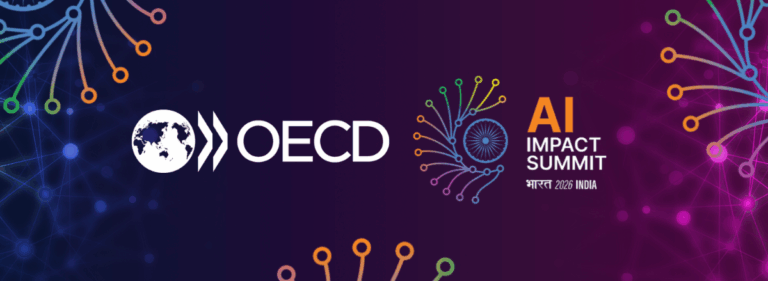Enabling data sharing for social benefit through data trusts at the Global Partnership on AI, GPAI
Data is central to the development of AI. Questions about who can access data, for what purpose, and for whose benefit are at the heart of current debates about the development of trustworthy AI technologies, and data stewardship plays an important role in negotiating the answers. To contribute to these conversations, GPAI’s Data Working Group works to identify the interventions that can align data use with our ambitions to create trustworthy AI, and create the conditions that promote widespread uptake of those interventions.
Data trusts offer a new route to achieve trustworthy data stewardship. Data trusts are a type of data institution that supports individuals or groups to pool resources, tasking an independent ‘trustee’ to manage those resources for the benefit of the trust’s members. In recent years, they have attracted attention from policymakers around the world as a tool for enabling access to data while protecting citizens’ rights. But to translate this attention into real-world benefits, we need better understandings of the role data trusts can play in data stewardship and the operational strategies that can implement data trusts methods in practice.
To help move the field forward, last month our co-chairs, Jeni Tennison and Maja Bogataj Jančič announced a new GPAI project Enabling data sharing for social benefit through data trusts.
There are many different types of data institutions. So, to start the project, the Working Group has been asking: what are data trusts and what makes them different from other mechanisms for data stewardship? Our statement, published today, synthesises these discussions and creates a framework for understanding the special role that data trusts play in the data stewardship landscape.
We hope that this consensus statement is itself a useful baseline step for wider international collaboration on data trusts. The full statement is available here.
Within that statement, the Working Group agrees that data trusts are characterised by their focus on:
- enabling data-driven innovation for social and economic benefit, by creating a trustworthy environment for data sharing.
- re-balancing power asymmetries in data exchanges, by encouraging and empowering the originators of the data to play an active role in setting the terms of data use – and the distribution of the value that creates – and providing a platform for collective negotiation; and
- anticipating, preventing, and managing the vulnerabilities associated with data use, through professional data stewardship.
One of the distinctive features of a data trust, in contrast to other types of data intermediary, is the concept of ‘bottom-up’ engagement. Data trusts should offer a vehicle for individuals or groups to choose how they want data that is about them to be used, engaging a trustee to make decisions about data use on their behalf. This relationship implies a set of functions specific to data trusts. Data trusts will need to:
- provide a platform for collectives to establish desirable terms and conditions of data use, setting the constitution of a trust;
- appoint expert trustees (professional managers) to take responsibility for the stewardship of the trust’s assets,
- create a regime of strong fiduciary responsibilities to bind the trustees to act in the interests of the trust’s members;
- negotiate the use of trust assets in accordance with agreed terms and conditions, facilitating safe and controlled data use; and
- establish safeguards and oversight mechanisms to prevent data misuse and to take remedial action in the event of the trust’s terms and conditions being breached.
GPAI’s data trusts project will mobilise the expertise of the international community to improve our understanding of the role data trusts can play in trustworthy data stewardship and of the operational considerations that will influence their ways of working. Over the course of the project, we hope to explore:
- What types of conditions or challenges favour the use of data trusts over other governance interventions?
- How can data trusts help resolve the tensions that emerge between different stakeholders when negotiating data use?
- How can we design and run data trusts in practice?
- How can data trusts be made accessible and responsive to community interests, especially when there may be conflicts of interest between different stakeholders?
- What legal interventions can support the collectivisation of rights, and help individuals exercise their data rights?
In the next phase of this project, we’ll be working with the India-based Aapti Institute, and the UK’s Open Data Institute on two reports, to be published later this year. These will explore the operational strategies that can implement data trusts and the legislative frameworks needed to support trustworthy data institutions. A big “thank you” is also due of course to the colleagues who joined our independent evaluation panel to make this decision.
We hope these reports will start a conversation with the wider community about what action is needed to make data trusts accessible and beneficial to all in society. We look forward to sharing more details as this work unfolds.
The Aapti / ODI team will also be sharing more information on their work as part of their wider community engagement. This will be posted on the Aapti / ODI websites, and here too, so stay tuned for further news.
If you have any comments or thoughts on the project in the meantime, then we would love to hear them – please contact GPAI’s Montréal Centre of Expertise (the “CEIMIA”) on info@ceimia.org, marking your email “For the attention of Ed Teather”.



































